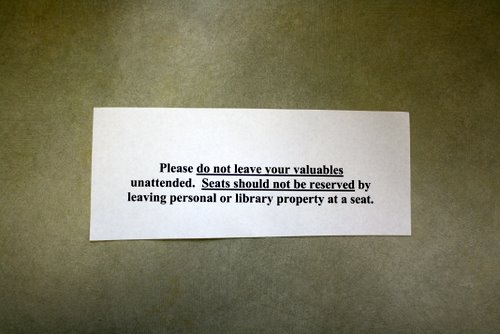On Wednesday, April 11, the library participated in Library Snapshot Day, a statewide event scheduled to coincide with the American Library Association’s National Library Week. On Snapshot Day, libraries throughout Massachusetts collect statistics and other information to illustrate a typical day in the life of the library – a snapshot, as the name implies.
 Snapshot Day shows the value and contributions of libraries to communities around the commonwealth, whether the community is a school, a town or city, or a college campus. Like most other libraries, we collect these numbers every day, but they’re mostly for internal use. Last week they were meant to be shared.
Snapshot Day shows the value and contributions of libraries to communities around the commonwealth, whether the community is a school, a town or city, or a college campus. Like most other libraries, we collect these numbers every day, but they’re mostly for internal use. Last week they were meant to be shared.
Here’s a picture of April 11, a typical Wednesday at the Bentley Library:
- More than four thousand people visited the library – 4,640, to be exact.
- Around 100 people attended the Desserts & Downloads program celebrating the launch of our new downloadable audiobooks and ebooks. During the event, users downloaded 46 titles to their laptops, iPads, smart phones and other mobile devices.
- Patrons performed 999 searches in the library’s online catalog and 1,559 searches in the ProQuest databases.
- The group study rooms were busy, with a total of 305 reservations.
- The circulation desk handled 425 items for 170 patrons: 271 items borrowed and 154 items returned, including course reserves.
- The circulation desk also inventoried 80 new items for the library’s collection.
- The interlibrary loan department received 40 requests for materials from Bentley patrons and those at other libraries, including 17 borrowing requests and 23 lending requests.
- The technical services staff was also busy. In one day, they:
- Checked in 25 new periodical issues and received 75 new books
- Paid invoices for 264 publications, including periodicals, videos, serials, books, and electronic services
- Cataloged 126 new titles and added 136 new items or volumes to the collection
- Added bibliographic records for 408 new ebooks to the catalog for the Books 24×7 collection
- The reference staff fielded 40 questions, including 27 questions about research or academic help and reference sources. The total of 40 includes questions asked in person and those that came in over the phone and through instant messages or email. Top question topics were:
- Researching World War II battles
- Finding and reading company annual reports
- Citing sources in a particular format
- Finding the full text of a journal article
- Downloading an ebook to a particular device
We also asked patrons using the circulation and reference desks to complete a short survey telling us how they were using the library that day. Here’s what a small, unscientific sample of 58 Bentley Library patrons had to say about what they were doing at the library last Wednesday.
What did you do at the Bentley Library today?
- Check out an item: 10
- Homework: 24
- Research: 14
- Quiet place to study: 19
- Read: 15
- Use the Internet: 18
- Attend a meeting: 18
- Attend a program: 14
- Other: 9
We’re here to serve the entire Bentley community, so we also wanted to know who was using the library on Snapshot Day.
What is your role at Bentley? (Some respondents selected more than one option.)
- Undergraduate student: 34
- Graduate student: 8
- Faculty: 3
- Staff: 14
- Waltham resident: 1
- Other: 2 (includes alumni and retired staff)
We also asked about how the library helps patrons with their academic work, research, and teaching. As was the case last year, two of the major themes in your responses were quiet study space and access to resources such as books and databases. This year, many patrons mentioned our new downloadable ebooks and audiobooks as a major attraction of the library.
Here are some highlights from the comments:
“Indispensable.” –Faculty member
“Gives the students a quiet, comfortable alternative place to do their work, as opposed to a dorm room or house.” –Undergraduate student
“Provides a nice comfortable space to do work with no distractions. The computers also have good programs for free.” –Undergraduate student
“… a quiet and distraction-free zone. Everything is so technologically advanced and I love the study rooms for group work.” –Undergraduate student
“…The search engines help with research and rooms are perfect for meetings.” –Undergraduate student
“They assist me in accomplishing a variety of tasks as well as improving my productivity.” –Faculty member
“Borrow books, do research, relax, read magazines, DVDs! I love my library!” –Staff member
“MANY resources and MANY reference librarians are always available when I need library services.” –Staff member
“It is a quiet place for me to go, and the cubicles on the second floor provide zero distractions! I also enjoy going to the larger tables when I have easy work to do and just like to spread out.” –Undergraduate student
“Love the current bestsellers.” –Retired staff member
The library staff would like to extend a big thank-you to everyone who helped out with Snapshot Day. Your comments and suggestions about how you use the library are always welcome – on Snapshot Day and throughout the year.

 From September 24 through October 1, the Bentley Library joins libraries around the country in observing
From September 24 through October 1, the Bentley Library joins libraries around the country in observing 
